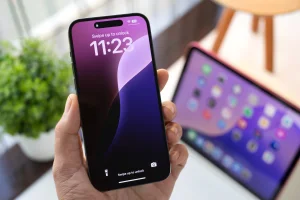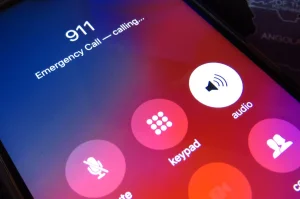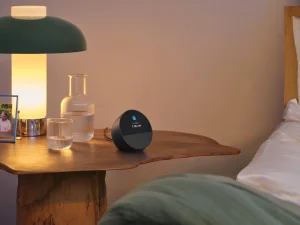This is the new 6G chip that will change the speed of mobile internet forever
The new 6G chip developed by Chinese scientists will be able to offer speeds that were previously impossible in the field of mobile telephony

A group of Chinese scientists from Peking University and City University of Hong Kong has developed a revolutionary 6G chip that promises connection speeds hundreds of times faster than current 5G networks.
This tiny device, measuring just 11 by 1.7 millimeters, could radically change the way we connect to the internet by offering data transmission speeds of over 100 gigabits per second and the ability to operate across the entire frequency spectrum, from 0.5 GHz to 115 GHz.
What's so special about the 6G chip and why is it so fast?
This 6G chip, developed by Chinese researchers, is a true revolution in mobile communications technology. The key lies in its ability to operate across an ultra-wide frequency spectrum, ranging from 0.5 GHz to 115 GHz, a much wider range than previous technologies.
The chip is tiny, measuring just 11 millimeters by 1.7 millimeters, but it integrates the work that until now required nine different radio systems, all into a single compact device.
This is possible because they use a technology called photon-electron fusion, which basically converts radio signals into optical pulses (light), and this light allows data to be transmitted at ultra-fast speeds and without interference. Thus, they can instantly switch between different frequencies and adjust the signal so as not to lose connectivity, something that was previously a problem with saturated bands or interference.
This ability to navigate between frequencies in real time and operate adaptively is a built-in “frequency navigation” function, which means that the chip can automatically find the best available band for data transmission.
Speeds and practical applications of the 6G chip
The speeds that this chip can achieve are more than 100 gigabits per second (Gbps), which translates to a data transfer rate around 10,000 times faster than the current 5G,which offers approximately 10 Gbps under optimal conditions.
To give you a closer look: with this technology, you could download a movie in 8K resolution (which can weigh around 50 GB) in a matter of seconds. Furthermore, speeds in some rural areas currently hover around 20 megabits per second, so this advancement multiplies that capacity by thousands.
This opens the door to many futuristic applications such as:
In addition, this chip can operate efficiently with very low power consumption, which is vital for mobile devices, drones, and Internet of Things (IoT) equipment.
Why is this such a significant technological leap?
What makes this chip unique is that it breaks the traditional limitation of having to use multiple chips or systems to cover different transmission frequencies. A single device can handle all the necessary bands, from low frequencies to ultra-fast terahertz waves.
This represents a huge leap forward in technology miniaturization and paves the way for 6G to be easier to deploy in a wide range of devices, from mobile phones to base stations, drones, and industrial devices.
Furthermore, it integrates artificial intelligence capabilities that could allow networks to be “AI-native,” with the ability to self-adapt to constantly improve efficiency and stability.
In short, this new 6G chip not only exponentially increases speed, but also incorporates adaptability, energy efficiency, and intelligent features, paving the way for much faster, more stable, and ubiquitous connectivity around the world.
This technological leap could be available to the public in the next decade, marking a turning point in how we connect, consume content, and operate the digital technologies of the future.
This news has been tken from authentic news syndicates and agencies and only the wordings has been changed keeping the menaing intact. We have not done personal research yet and do not guarantee the complete genuinity and request you to verify from other sources too.










